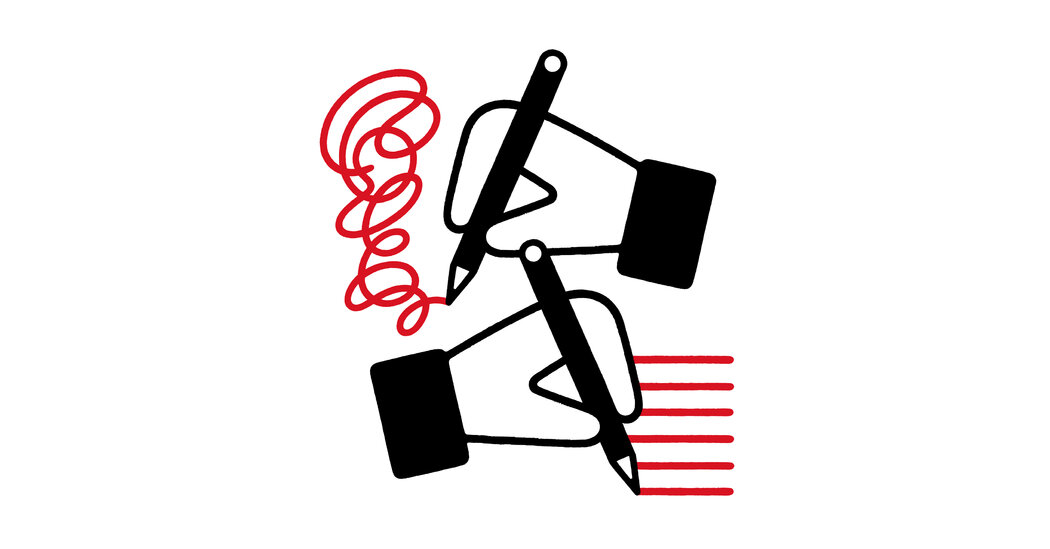
My ex-husband invited our 19-year-old daughter to spend a long weekend in Las Vegas with him, his wife and their children. She was excited to go. She asked him how to pack, in case she needed dressy clothes. He told her to pack for hot weather and outdoor activities. After arriving, she discovered they weren’t going to Las Vegas at all. They drove to Zion National Park for several days of hiking. But my daughter has heat-induced asthma, and her father knows this! Hiking in 107-degree heat is a health risk for her. When she asked to stop, they refused and she was raised not to argue with them. So she overused her rescue inhaler. Later, she discovered they intentionally misled her about the trip because they feared she wouldn’t come, and they wanted a family picture for their Christmas card. Please tell me I can call them out?
MOM
I get your distress, Mom. But I am much more concerned that your young adult daughter has been raised, as you say, to acquiesce to the demands of others rather than to look out for her own well-being. Your (justified) anger about this single episode is small potatoes compared with that.
For you to call out your ex (or anyone else) who pushes your daughter into unsafe activities — after the fact! — does nothing to help her learn to navigate these challenges for herself. And that is the essence of adulthood. Don’t get me wrong: I get the pleasure of screaming down the phone, but that’s not your first order of business here.
Talk to your daughter: “Honey, it’s never selfish to prioritize taking care of yourself over making other people happy. I may not have told you that enough. Put yourself and your safety first, and say no when people ask for things that aren’t right for you.”
Then talk through some smarter choices she could have made over the weekend: explaining the serious health risks to her of hiking in extreme heat; staying at the lodge; or even calling you for help with an early departure if her father and stepmother continued to be unreasonable. Your role is to prepare your daughter for the world, not to fight her battles for her.
I’m Not Fine, Thanks
Last month, I lost my partner of 42 years. I feel broken. When I run into people who know about my partner’s death — friends or neighbors, for instance — they ask me: “So, how are you doing?” I reply honestly, which is to say: “Not very well,” or sometimes I just shake my head. This almost always results in the other person looking uncomfortable. I don’t want to make anyone feel awkward, but I think replying honestly is part of my healing process. I don’t want to say, “I’m fine, thanks.” I’m not. Is there a gracious response that would avoid awkwardness?
WIDOWER
I’m so sorry for your loss. I’d like to help you reframe this issue. Your challenge right now is to get through one of the worst periods of your life, not to make it more palatable to random bystanders. “How are you?” How do they think you are 30 days after losing your partner of four decades?
Try to ignore the seeming discomfort of friends and neighbors at your honest responses. (It’s not important.) Keep the focus on you and your feelings. If you believe strongly in making others feel at ease, you can elaborate slightly: “I’m not doing well now, but I’m taking it one day at a time.” There’s hope in that.
That Guy
My family is planning a milestone birthday for my father, and the entire extended family (all vaccinated and tested) is expected to attend. My mother has hired a professional photographer to take family photos. One of my daughters, in her late 20s, is bringing her serious boyfriend of six months. Should he be included in the family photos?
CAROL
Consult your daughter. Tell her you want to respect her relationship, but you don’t want to put pressure on it. Then ask her how she’d like to handle family photographs, maybe including the boyfriend in some, but not others. Err on the side of inclusion, though. You don’t want to hurt her. Your relationship with her is more important than photographs.
I Have the Card, but Where’s the Gift?
A grateful client gave my co-worker and me $100 gift cards to a local restaurant. When we tried to use them, we were told they had no value. I am absolutely certain that our client bought them in good faith. At the same time, we would hate to make her feel bad about this. Should we tell her, or is it better to keep quiet?
ANONYMOUS
Definitely tell her about the mishap! But make sure you do so in the context of thanking her for her generous gift. Problems with gift cards are not uncommon. If she calls the restaurant manager and explains the issue (with her credit card statement in hand), that will probably clear things up. Think of it like this: If you were her, would you want to throw away $200 because of a technical glitch?
For help with your awkward situation, send a question to SocialQ@nytimes.com, to Philip Galanes on Facebook or @SocialQPhilip on Twitter.






